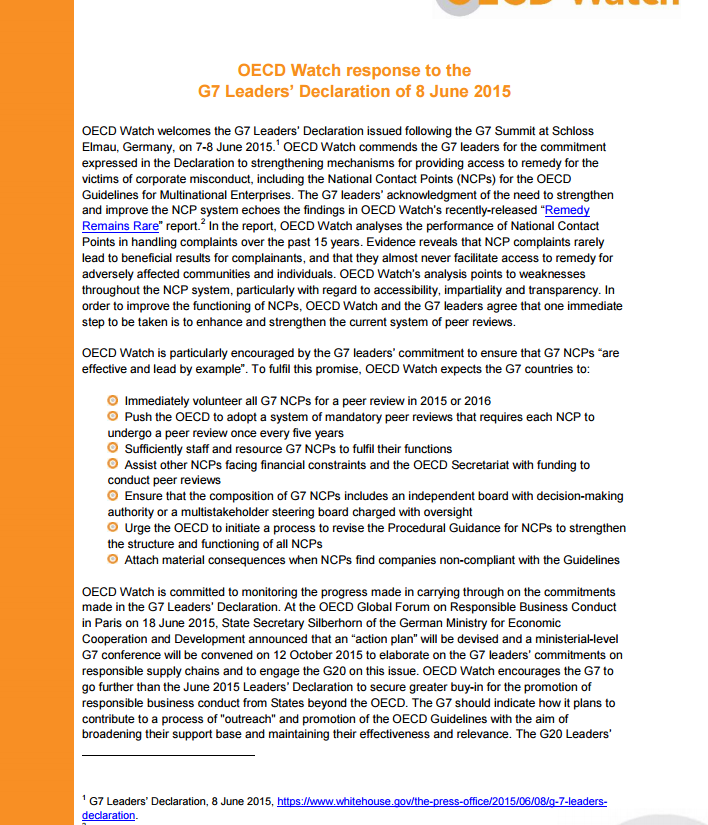
OECD Watch response to the G7 Leaders’ Declaration of 8 June 2015



OECD Watch welcomes the G7 Leaders Declaration issued following the G7 Summit at Schloss Elmau, Germany, on 7-8 June 2015. OECD Watch commends the G7 leaders for the commitment expressed in the Declaration to strengthening mechanisms for providing access to remedy for the victims of corporate misconduct, including the National Contact Points (NCPs) for the OECD Guidelines for Multinational Enterprises. The G7 leaders acknowledgment of the need to strengthen and improve the NCP system echoes the findings in OECD Watchs recently-released “Remedy Remains Rare” report. In order to improve the functioning of NCPs, OECD Watch and the G7 leaders agree that one immediate step to be taken is to enhance and strengthen the current system of peer reviews. OECD Watch is particularly encouraged by the G7 leaders commitment to ensure that G7 NCPs “are effective and lead by example”. This statement provides G7 countries with concrete recommendations as to how they can fulfil this promise and ensure that their NCPs lead by example.
Partners
Publication










